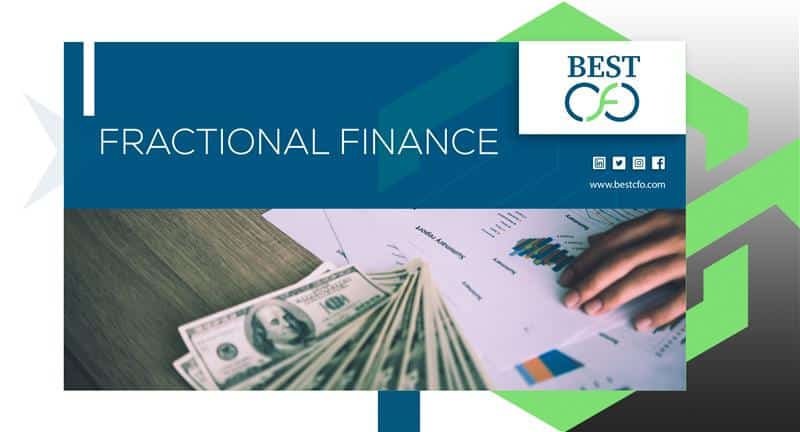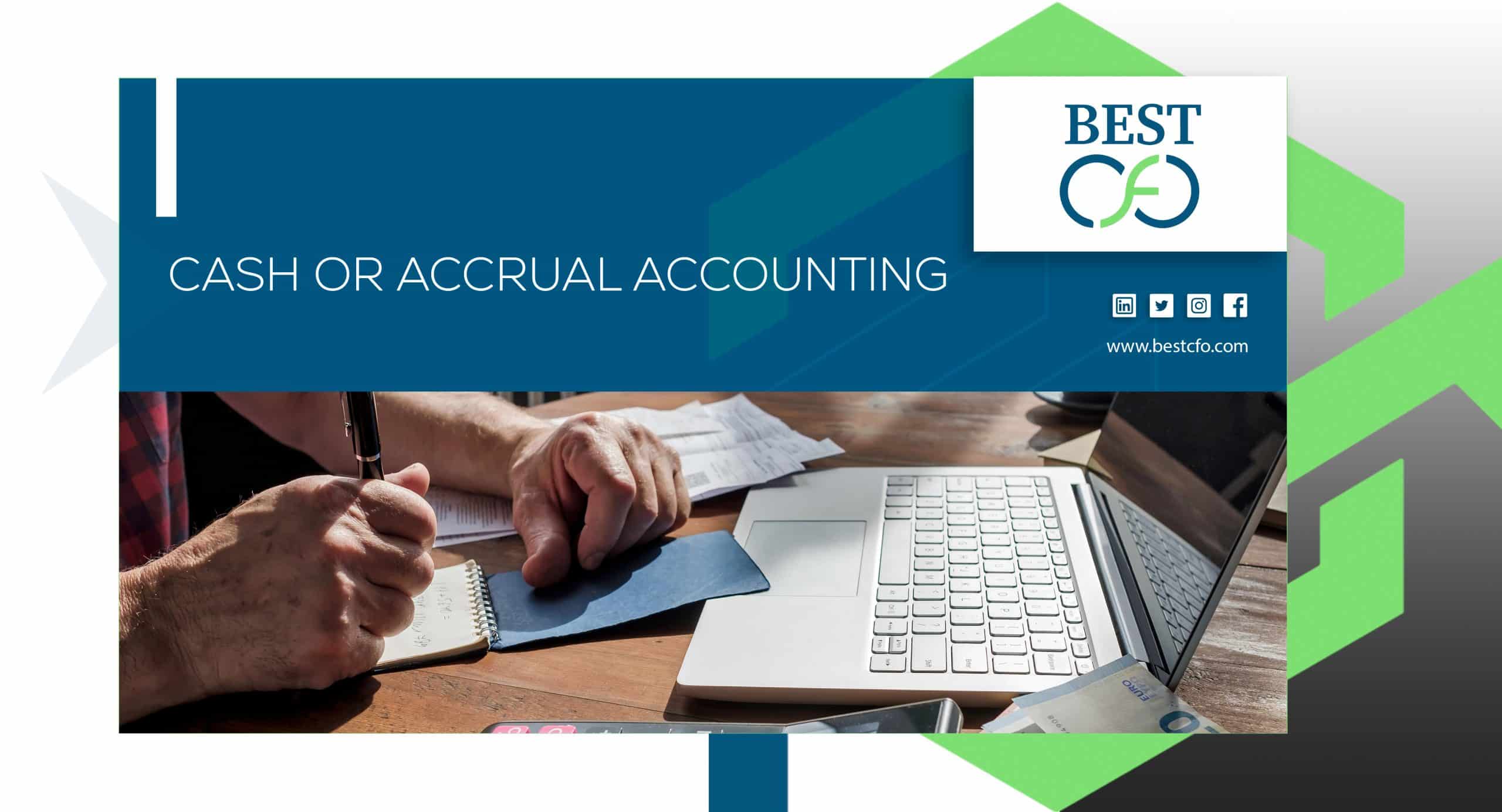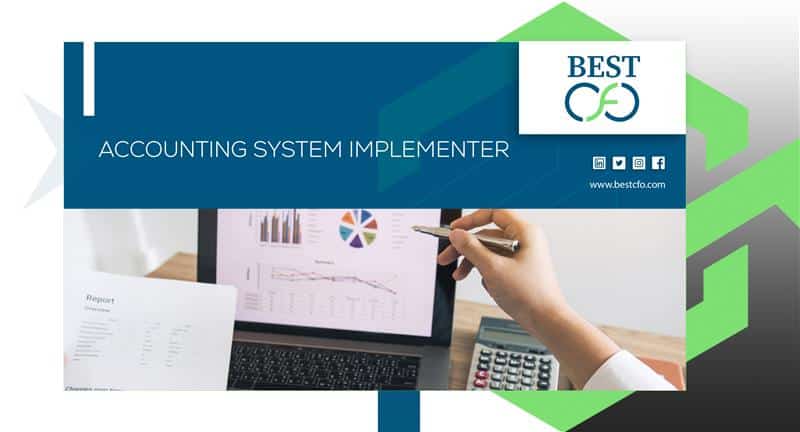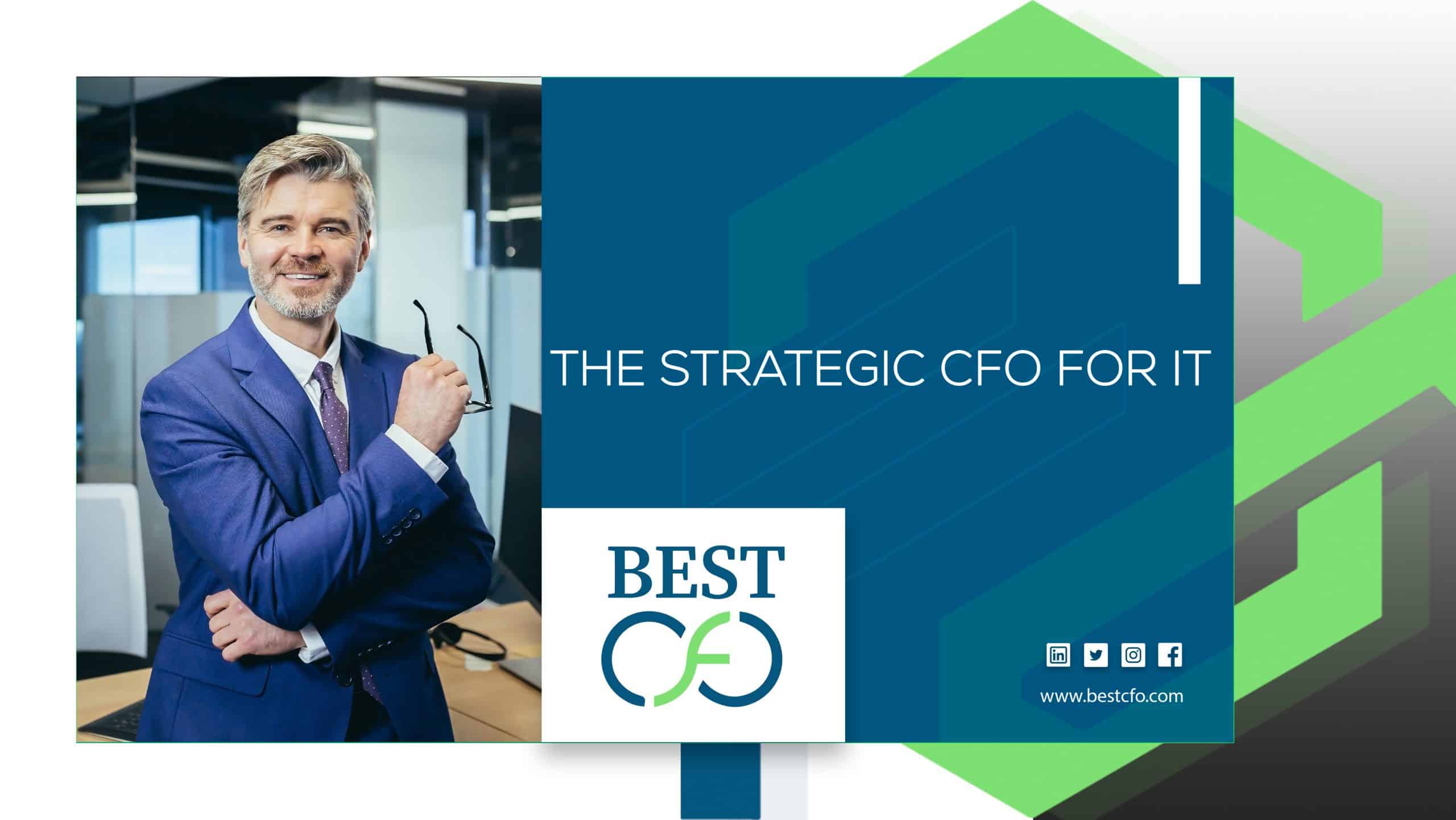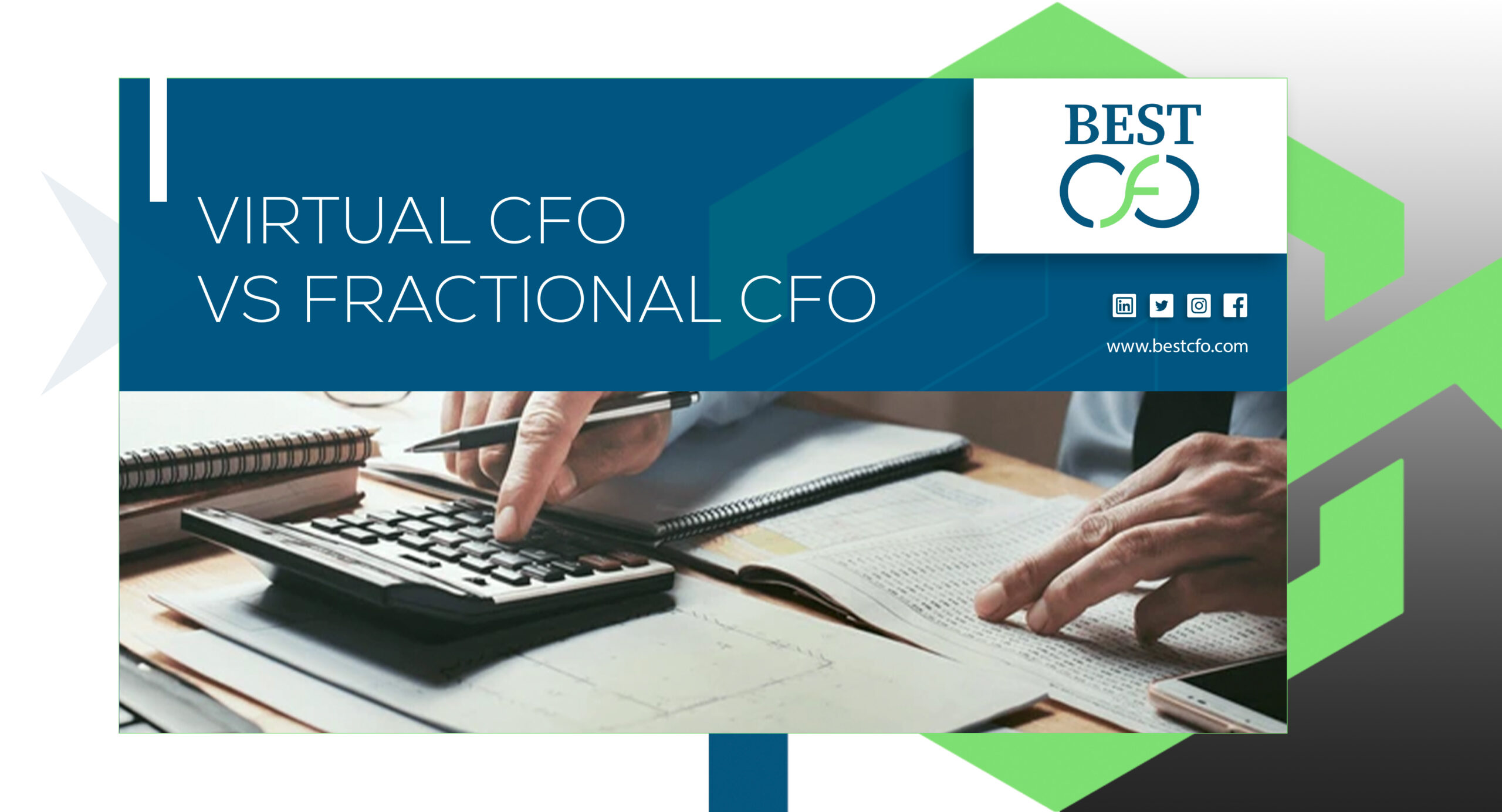
Fractional vs. Virtual CFO: Everything You Need To Know
Companies often find it challenging to handle their finances. Here, they need a Fractional or Virtual CFO to manage their finances. While both positions provide financial expertise, but in a different way.
Let's read the key differences between a Fractional CFO and a Virtual CFO, to help you make the right decision for your firm or business.
Who is a Fractional CFO?
A Fractional CFO works part-time on a contract basis. These experts provide companies with high-level financial guidance without burdening the cost of hiring a full-time CFO. A Fractional CFO typically handles key challenges. This may include improving cash flow, preparing for a sale, or managing financial strategies.
For example, a startup may additionally hire a Fractional CFO making a financial plan and budget. This helps them to remain cost-effective while acquiring financial services.
Key Benefits of Fractional CFO Services
- You only pay for the services you need.
- A Fractional CFO can dedicate to providing custom strategies and solutions.
- They often engage closely with your team for real-time feedback and collaboration.
- You don't need a full-time CFO as a fractional CFO can do this at low cost.
- A Fractional CFO can perform long-term custom planning, forecasting, and financial strategies.
Cons of Hiring a Fractional CFO
- As they work part-time, they may be unavailable at crucial times.
- Sometimes, a fractional CFO can also cost more, if they are more experienced to the relevant industry.
- They may only be available for specific projects. This can limit their involvement in ongoing financial operations.
Who is a Virtual CFO?
A Virtual CFO works similar to a Fractional CFO but remotely. They use tech for financial oversights and strategic planning. Virtual CFO services can include:
- Financial reporting
- Budgeting
- Forecasting.
This role is ideal for companies that require ongoing financial support but do not need a full-time CFO.
Consider a mid-sized company that struggles with financial analysis and reporting. By hiring a Virtual CFO, they can access ongoing support without the need for an in-house team. This arrangement can enhance their financial strategies and keep them on track.
Key Benefits of Virtual CFO Services
- Virtual CFO services work as per your business or project needs.
- They utilize modern financial tools and software to streamline processes. This can improve efficiency in financial reporting and analysis.
- A Virtual CFO can provide expert guidance. This can help you monitor your financial stability over time.
- You can work with a Virtual CFO from anywhere.
- Many offer subscription models. This can be more budget friendly.
Cons of Hiring a Virtual CFO
- Limited face-to-face communication can lead to misunderstandings or less engagement with your team.
- Reliance on digital tools can be a barrier for companies less familiar with tech solutions.
- Some Virtual CFOs might offer similar services as bookkeeping, leading to confusion over what each role entails.
- The quality of service can vary significantly depending on the Virtual CFO you choose, requiring careful selection.
Fractional CFO vs. Virtual CFO: Key Differences!
Criteria | Fractional CFO | Virtual CFO |
|---|---|---|
Work Arrangement | Works part-time, often on-site or in-person | Operates remotely, primarily using digital tools |
Level of Engagement | Deeply involved with specific projects | Provides ongoing support, less frequent face-to-face interactions |
Cost Structure | Charges a fixed fee or hourly rate based on specific projects | Often uses a subscription model for predictable costs |
Accessibility | Limited to contracted hours, may not always be available | Accessible from anywhere, ideal for remote collaboration |
Personal Interaction | More personalized attention, building closer relationships | Less personal engagement, may rely more on technology |
Expertise Level | High-level financial knowledge tailored to specific needs | Varies by provider, but generally provides comprehensive financial services |
Scalability | May require renegotiation for increased services | Easily scalable, allowing adjustments based on business needs |
Focus Areas | Focused on specific projects like financial strategy, budgeting, or forecasting | Focused on overall financial health and ongoing management |
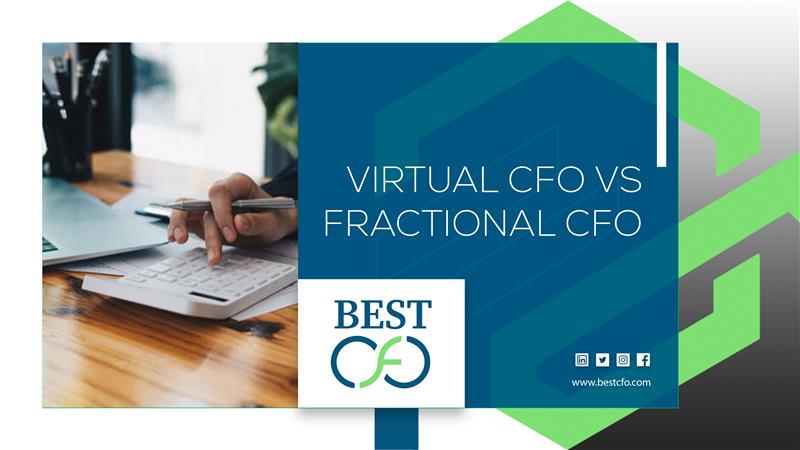
So, What's the Catch!
Either you go for fractional CFO services or virtual CFO services, both are effective for your financial growth. To improve your financial strategies, research well about the best professionals. Why? Because hiring a Virtual CFO or a Fractional CFO is a key to achieving your business goals.
FAQs
1. What is included in virtual CFO services?
Virtual CFO services include a variety of services as per your business need. This may include:
- Financial Reporting
- Budgeting
- Cash Flow Management
- Financial Strategy Development
- Risk Management
- Advisory Services
- Performance Analysis.
2. How much does a virtual CFO cost?
The virtual CFO cost varies depending on various factors such as the complexity of services, business size, and CFO expertise. On average, you can expect from $1,000 to $5,000 per month.
3. What services does a fractional CFO provide?
Fractional CFOs work on your specific business requirements without full-time commitment. This may include:
- Strategic Financial Planning
- Budgeting
- Financial Analysis
- Cash Flow Management
- Performance Metrics Tracking
- Funding Strategy
- Compliance
- Risk Management.
4. How much does a fractional CFO charge?
The cost of hiring a fractional CFO depends on the level of services you require. On average, it may cost between $150 and $400 per hour for fractional CFO services.
5. How much does hiring the CFO from the Best CFO cost?
Hiring a Best CFO depends on the level of services your company needs. In general, you can expect from $3,000 to $15,000 per month. Consult your requirement with the Best CFO and we'll deliver the top-level CFO expertise at low cost.
Related Posts
Do I Need An Accountant As A Sole Trader?
Do I Need An Accountant As A Sole Trader? Are you a sole trader running…
Fractional Finance 101: Unlocking the Power of Micro-Investing
Fractional Finance 101: Unlocking the Power of Micro-Investing Have you ever looked at the price…
Cash or Accrual Accounting: Which One Should You Use?
Cash or Accrual Accounting: Which One Should You Use? Many businesses have a choice between…
Top Accounting System Implementer – QuickBooks & More
Top Accounting System Implementer – QuickBooks & More Choosing the right accounting software is one…
 Demos
Demos  Colors
Colors  Docs
Docs  Support
Support 




